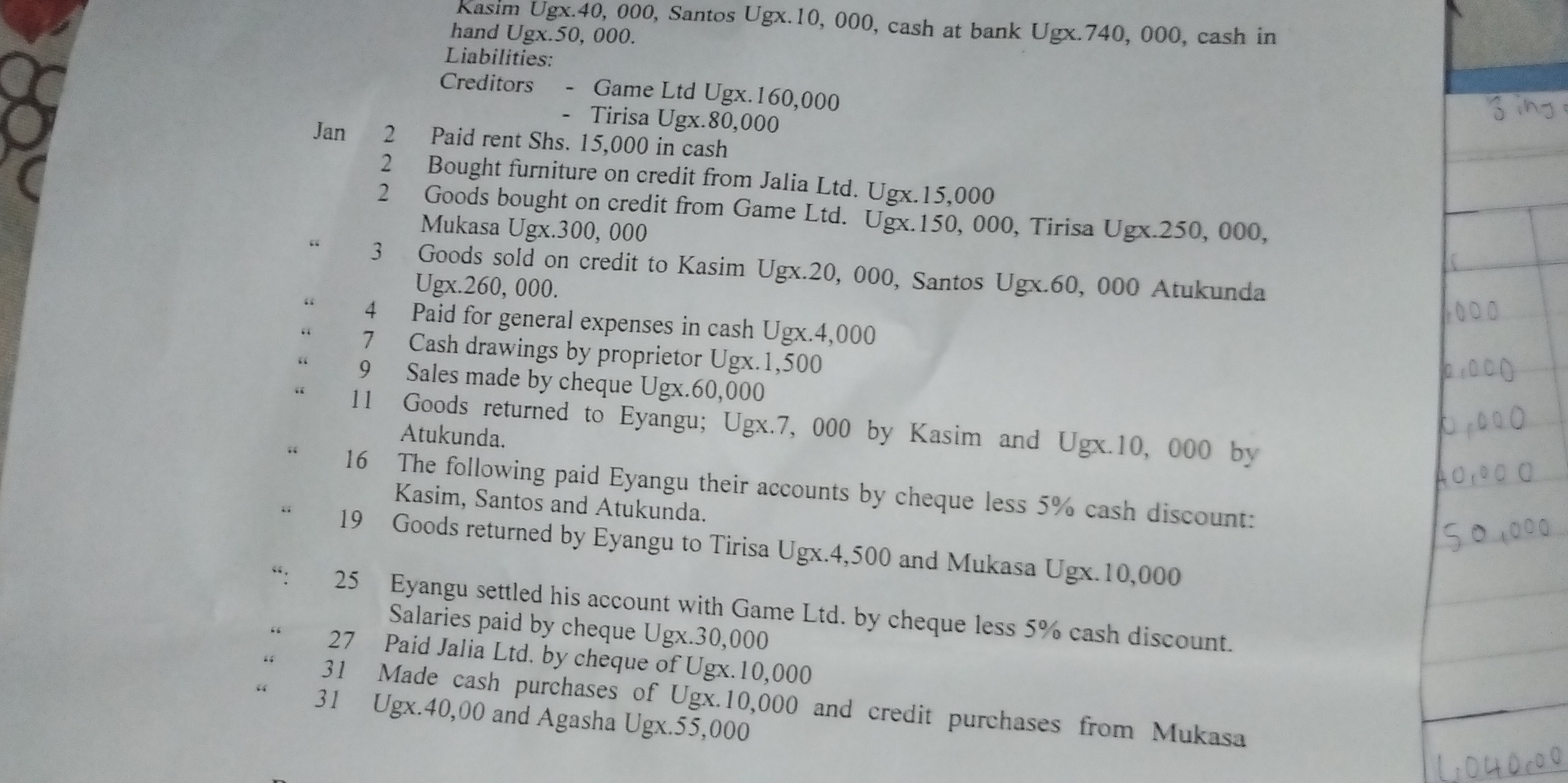Analyze the accounting transactions provided in the image.

Understand the Problem
The image shows a series of accounting transactions for a company named Game Ltd. It includes dates, descriptions of transactions (e.g., paid rent, bought furniture, goods sold on credit, etc.), parties involved (e.g., Jalia Ltd., Kasim, Santos, Atukunda, Eyangu, Tirisa, Mukasa), and amounts in Ugandan shillings (Ugx). This looks like a homework question related to accounting.
Answer
Each transaction affects the accounting equation (Assets = Liabilities + Equity) by impacting at least two accounts.
To analyze the transactions, the accounting equation (Assets = Liabilities + Equity) must be applied to each transaction. Each transaction will affect at least two accounts. For example, paying rent in cash decreases cash (an asset) and increases expenses (which decreases equity).
Answer for screen readers
To analyze the transactions, the accounting equation (Assets = Liabilities + Equity) must be applied to each transaction. Each transaction will affect at least two accounts. For example, paying rent in cash decreases cash (an asset) and increases expenses (which decreases equity).
More Information
Understanding how transactions affect the accounting equation is fundamental to financial accounting. This ensures the balance of the accounting equation is maintained.
Tips
A common mistake is not identifying all the accounts affected by a transaction. Remember that every transaction has at least two effects.
Sources
- Analyzing Transactions Using the Accounting Equation - chegg.com
- Analyze Business Transactions Using the Accounting Equation and ... - library.fiveable.me
- Accounting Transactions - Overview, Types, Double-Entry Recording - corporatefinanceinstitute.com
AI-generated content may contain errors. Please verify critical information